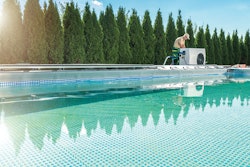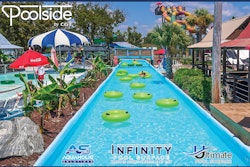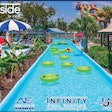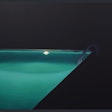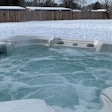CDC Issues Grim Reports On Public Pool And Spa Maintenance
Public pools and spas are largely failing to meet proper sanitation standards, creating an environment ripe for the spread of recreational water illnesses, according to two studies released by the Centers for Disease Control and Prevention in June of 2003 and July of this year. While this seems like bad news, it presents an opportunity for the industry to take a lead in helping keep the public safe.
During inspections for regulatory compliance in 2002, the CDC collected data pertaining to spa and pool water chemistry, filtration and recirculation, and management and operations. Of the inspections, 11 percent resulted in the immediate closing of the spa and 8.3 percent resulted in the immediate closing of the pool.
In the July 2004 "Surveillance Data from Public Spa Inspections" report, the CDC collected data from 5,209 spas in counties in six states. Similarly, in the June 2003 "Surveillance Data from Swimming Pool Inspections" report, the CDC collected data from 22,131 public pools in counties in six states. The reports state that "a violation was noted when an inspection item was not in compliance with state or local regulations."
According to Michael Beach, epidemiologist for the CDC, the two key violations in both studies were lack of disinfection and lack of good pH control, both of which can be attributed to poor upkeep.
Data show that approximately half of the public pool and spa inspections had one or more violations. The CDC cites various violations for policy and management — 23 percent of spa operators lacked adequate training and 13 percent kept inadequate records. The highest percentages of spa violations occurred in campgrounds (21.9 percent) and hotel/motel spas (19.6 percent). According to the report on pools, "in sites where training was required, inspections demonstrated that many pool operators did not have appropriate certification, with apartment/condominium complexes having the highest percentage of violations."
Although the results from the analyses are limited to the specific data collection areas, Beach believes this problem is widespread.
"If you talk to other health inspectors across the country, this is what they tend to talk about," says Beach.
"This is the norm."
The implications of the studies are of great concern to the CDC. Dirty spa water can lead to skin, respiratory and ear infections while unclean pool water can cause and spread gastrointestinal illnesses. The pathogen cryptosporidium, which causes diarrhea, abdominal cramping and nausea, is actually chlorine-resistant, demanding even more care and a necessary and swift increase in public awareness.
"The frontline protection for the public is the pool operator," says Beach. "If they understand how important their role is to stop the spread of disease, then I think they'll start thinking more about the role that they play."
According to Beach, the pool and spa industry can also play an important role in helping keep the public safe. Retailers and manufacturers can remind public pool and spa operators that chlorine doesn't kill everything and that poor maintenance is a real threat to the public. Builders can design pools and spas that emphasize ease of maintenance.
"I think it's a heavy responsibility for all of us involved in aquatics," says Beach. "For those outbreaks that do occur that are the result of poor maintenance, it gives the whole industry a bad rap."
NSPI Releases Details Of New Organization
A statement released to NSPI members in July included further information on one of two new organizations that will take the place of NSPI, which will cease to exist in its current form by the end of the year, pending court approval.
These changes are a result of an ongoing reorganization effort under the association's August 2002 Chapter 11 bankruptcy filing.
One of the new organizations, the International Aquatic Foundation, is being created to develop "best-practice guidelines for the manufacture, construction and safe operation of aquatic industry products, including swimming pools, hot tubs, spas, recreational facilities and pool and spa barriers," says Jack Cergol, NSPI chief staff executive.
In addition, the IAF will educate the public through public service announcements. Cergol also says he anticipates the organization will offer educational classes relating to its standards, and will develop tools for code officials.
The IAF will consist of a board of directors that will oversee operations and activities of a professional staff as well as direct fundraising committees and help form committees to develop technical standards.
Incorporated as a 501(c)3, nonprofit corporation, the IAF will be supported by grants and donations, and by licensing the intellectual property it develops. All individual and corporate grants to the IAF are tax deductible, according to IRS rules.
For more information, contact Jack Cergol at 703/838-0083, ext. 161 or e-mail [email protected].
New Facilities
- Evosus recently expanded its offices by moving from Portland, Ore., to Vancouver, Wash. The company says its new headquarters offers a larger space for the development and creation of its retail store software.
- Lochinvar Corp. recently opened a new distribution facility in Orlando, Fla., to accommodate its line of residential, commercial and industrial water heaters, boilers, swimming pool heaters and storage tanks.
The new facility is located at 9695 Delegates Dr., Suite 502, Orlando, Fla. 32837. It can be reached at 407/855-8455. The company's corporate headquarters is in Lebanon, Tenn.
RecWaterTec Acquires Etani
Recreational Water Technologies, West Palm Beach, Fla., recently acquired Hollis, N.H.-based Etani International, a chemical company that's product line includes the AquaPill, a chemical feeding system that is placed in the skimmer and slowly releases water treatment chemicals from a pre-filled, ready-to-use plastic capsule.
Recreational Water Technologies has also agreed to act as Fort Lee, N.Y.-based Clearon Corp.'s sales and marketing representative for its line of water treatment chemicals.
Terms and conditions of the deal were not disclosed.
Recreational Water Technologies was incorporated earlier this year and develops specialty water treatment chemicals and related products such as water treatment devices, says John Stiglmeier, an investor in the company.
IPSSA And NPC Collaborate
The Independent Pool & Spa Service Association and the National Plasterers Council say they have formed a new relationship by approving the exchange of memberships. In addition, the organizations have approved IPSSA liaison Dan Gossage as a voting member of the NPC research committee.
"I am excited about my new role as a conduit between our organizations," says Gossage. "This will help our members understand firsthand that NPC's research is geared to solve issues that plague our mutual industries."
Mitch Brooks, executive director of NPC, agrees. "This will benefit the whole industry by saving time, money and duplication of efforts," he says.
"We're real excited."
Another Record Quarter For SCP
SCP Pool Corporation, Covington, La., reported record results for the second quarter of 2004, continuing a strong year in which it posted record first quarter net sales and net income.
Net sales for the quarter ended June 30 were $504.2 million, a 17 percent increase from the $431.9 million the company posted for the second quarter in 2003. A 12 percent increase in base business sales contributed $51.4 million dollars to the growth, while acquired service centers accounted for the rest. According to the company, the increase in base business sales is mainly due to growth in the installation of swimming pools, the execution of its sales and service programs and growth in complementary product sales.
SCP's net income of $43.6 million for the quarter represented a $9.6 million increase over the second quarter of 2003, and earnings per share increased 26 percent to $1.16.
Gross profits also increased, growing 20 percent to $145.2 million.
"Our continued improvement in the execution of our sales and service programs, which have progressively added more value to our customers and suppliers, is the principle reason for our success in what would otherwise be an 'average' pool year," said Manuel Perez de la Mesa, SCP's president and CEO. "We believe there is significant potential for continuing to add value and to improve our execution for many years into the future."
Net sales for the first six months of 2004 increased to $738.8 million from $628.3 million a year ago.
"The Board continues to be excited by POOL's (POOL is SCP's NASDAQ ticker symbol) initiatives to grow the industry and further its value to its customers and suppliers, the execution of which has continued to generate strong financial results," said Chairman Wilson B. Sexton.
SCP Pool Corporation is the world's largest wholesale distributor of swimming pool supplies and related products, with 198 service centers in North America and Europe. For more information on the company's SEC filing, visit scppool.com.


























